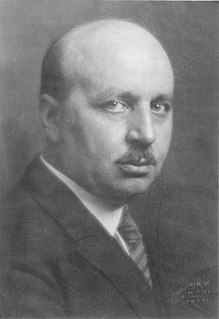A Quote by Jorge Luis Borges
A book is more than a verbal structure or series of verbal structures; it is the dialogue it establishes with its reader and the intonation it imposes upon his voice and the changing and durable images it leaves in his memory. A book is not an isolated being: it is a relationship, an axis of innumerable relationships.
Related Quotes
As words are not the things we speak about, and structure is the only link between them, structure becomes the only content of knowledge. If we gamble on verbal structures that have no observable empirical structures, such gambling can never give us any structural information about the world. Therefore such verbal structures are structurally obsolete, and if we believe in them, they induce delusions or other semantic disturbances.
Literature is not exhaustible, for the sufficient and simple reason that a single book is not. A book is not an isolated entity: it is a narration, an axis of innumerable narrations. One literature differs from another, either before or after it, not so much because of the text as for the manner in which it is read.
By the time the child can draw more that scribble, by the age of four or five years, an already well-formed body of conceptual knowledge formulated in language dominates his memory and controls his graphic work. Drawings are graphic accounts of essentially verbal processes. As an essentially verbal education gains control, the child abandons his graphic efforts and relies almost entirely on words. Language has first spoilt drawing and then swallowed it up completely.
Of all man’s instruments, the most wondrous, no doubt, is the book. The other instruments are extensions of his body. The microscope, the telescope, are extensions of his sight; the telephone is the extension of his voice; then we have the plow and the sword, extensions of the arm. But the book is something else altogether: the book is an extension of memory and imagination.
Watching a scene from a film in slow motion is possible, but there’s an unreal air to it; reading a passage from a book slowly does nothing to rob the words of their power. A film presents images; a book creates images inside the reader, with the reader’s active participation. Books are good for your brain.
It is clear that all verbal structures with meaning are verbal imitations of that elusive psychological and physiological process known as thought, a process stumbling through emotional entanglements, sudden irrational convictions, involuntary gleams of insight, rationalized prejudices, and blocks of panic and inertia, finally to reach a completely incommunicable intuition.
There are innumerable writing problems in an extended work. One book took a little more than six years. You, the writer, change in six years. The life around you changes. Your family changes. They grow up. They move away. The world is changing. You're also learning more about the subject. By the time you're writing the last chapters of the book, you know much more than you did when you started at the beginning.
Because he did not have time to read every new book in his field, the great Polish anthropologist Bronislaw Malinowski used a simple and efficient method of deciding which ones were worth his attention: Upon receiving a new book, he immediately checked the index to see if his name was cited, and how often. The more "Malinowski" the more compelling the book. No "Malinowski", and he doubted the subject of the book was anthropology at all.




































